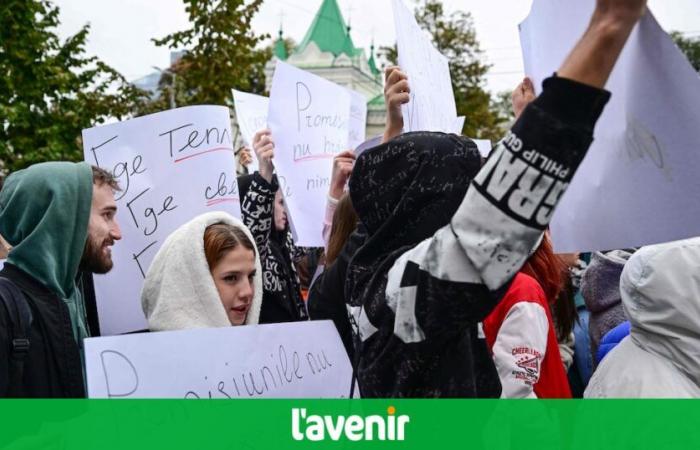
Russian interference and disinformation
Russian influence plays an important role in the domestic politics of the countries of the former Soviet Union. “This Russian influence, which involves mass disinformation on social networks, has taken an omnipresent place for ten years in all of these countries. This even crosses borders, because this external interference is developing in Africa and Europe “, continues the UCL professor.
1000th day of war in Ukraine: will Joe Biden’s ‘gift’ to Zelensky change the situation?
And obviously, the impact of Russian disinformation on the domestic politics of each country depends on the way in which it is combated: “some governments strongly denounce it and invest massively to counter any Russian interference, while others, for lack of of resources or by deliberate choice, adopt a more passive approach, allowing this influence to develop without real opposition.
A conflict that divides populations
The countries of the former USSR live in polarized societies, shared between European-leaning and pro-Russian political movements. But it is the struggles at the local level that determine the position of a country: “the movements that emerge at the local level are important, and determine whether or not they belong to Europe, independently of what is happening elsewhere. beyond borders. Moldova is a good example, because the re-election of Maia Sandu as president is at the same time synonymous with a rapprochement with Europe”, explains Tanguy Stuye.
However, the subject of adhesion or not to the European Union continues to be debated, even in countries which could have the ambition to integrate it: “To take the example of Moldova, Maia Sandu won the broad-headed election, but the referendum submitted to citizens on the subject of membership of the European Union was a close call”, retorts the professor. “Even among the president’s supporters, the question of belonging to Europe is debated.” How to explain this paradox? “On the one hand, we have a large number of Moldovans living abroad who voted in favor of membership because they were able to see with their own eyes the benefits of belonging to the European Union. “On the other hand, the war in Ukraine has cooled the desire to belong to the West of a large part of citizens who support Maia Sandu.”
In any case, there is no exact science around these referendums: “either it is won quite easily in favor of membership in the EU, or internal politics and local issues interfere with possible membership “, concludes Tanguy Struye.
.





